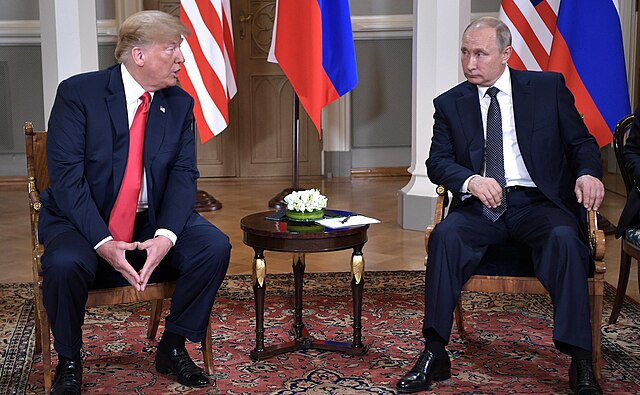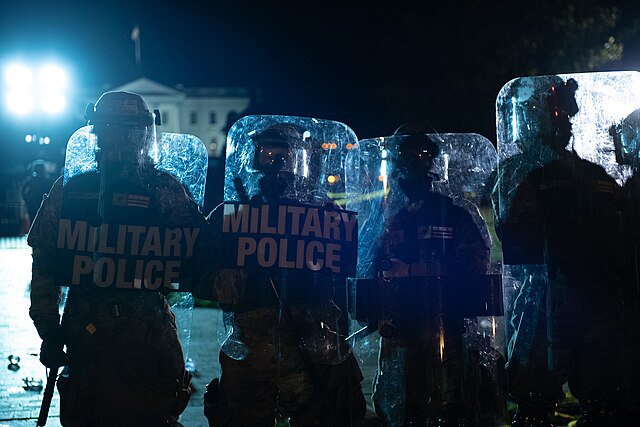From Trump’s high-stakes summit with Vladimir Putin in Alaska to his unprecedented move to federalize Washington, D.C.’s police force, the past week underscored the mounting tests to America’s leadership—both on the world stage and within its own borders.

Friday, August 15, President Trump hosted Russian President Vladimir Putin in Anchorage for a summit closely watched worldwide. The event was held with ceremony but delivered little tangible progress toward peace in Ukraine. During the talks, Putin proposed that Ukraine cede the Donetsk and Luhansk regions in exchange for halting further military advances—an offer Kyiv immediately rejected. Trump, who had previously called for an immediate ceasefire, shifted his language toward supporting a broader “peace agreement.”
That adjustment drew criticism from U.S. and European observers, who argued the summit risked legitimizing Moscow’s terms without securing concessions. Supporters countered that the discussions marked a necessary step toward resolving a war that has dragged on for more than three years. The meeting concluded with an unexpected gesture, as Putin—speaking in fluent English—invited Trump to Moscow for further negotiations.
At home, President Trump invoked Section 740 of the 1973 Home Rule Act to assume temporary federal control of the District of Columbia’s police force. Declaring a “public safety emergency,” the administration deployed 800 National Guard troops with Pam Bondi naming DEA head Terry Cole as the emergency commissioner.

The move sparked immediate legal challenges with local officials suing the administration to cease federal control. A federal judge later brokered a compromise allowing Police Chief Pamela Smith to retain command while Cole served in a coordinating role. Supporters argue the President acted within legal authority, pointing to public safety concerns, while critics view the move as an overreach into local governance and a threat to D.C.’s home rule framework.
Across 34 states, demonstrations erupted under the banner “Fight the Trump Takeover,” aimed at Republican-led redistricting efforts. In Texas, the epicenter of the dispute, Democratic lawmakers left the state to block a vote on new congressional maps that could expand GOP representation.
Committee on Congressional Redistricting, Select #txlege pic.twitter.com/oKdnephyZx
— Todd Hunter (@toddahunter) July 28, 2025
Republicans defended the process as a constitutional duty reserved to the states, while critics denounced the proposals as partisan gerrymandering. The standoff has intensified debate over how redistricting could shape the balance of power heading into the 2026 midterms.
In a major law enforcement development, Mexico extradited 26 high-ranking cartel members to the United States this week, one of the largest such operations in recent years. The deal was reached with the Trump administration under assurances that none of the suspects would face the death penalty.

U.S. officials praised the move as a step forward in combating organized crime and improving cross-border cooperation. Analysts noted that the extraditions could bolster joint efforts against drug trafficking and cartel violence, though they also stressed that the broader challenges of border security and cartel operations remain ongoing.
Unbelievable footage from NOAA’s Hurricane Hunters inside the eye of Hurricane Erin.
— Nahel Belgherze (@WxNB_) August 16, 2025
Simply incredible. pic.twitter.com/3pTiNI6mpX
Reports from the National Weather Service are that Hurricane Erin, currently a Category 4 weather event, is set to make landfall on the east coast by midweek. The tropical storm is currently off the coast of the Bahamas but will likely reach the North Carolina coast by Wednesday. Some locations have already begun evacuations in preparation for the hurricane.